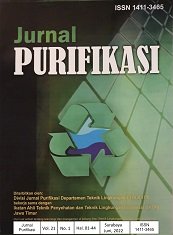EFFECT OF VEGETATION AND BUILDING DENSITIES TO URBAN THERMAL COMFORT (CASE STUDY OF DENPASAR CITY)
Main Article Content
Abstract
Denpasar is the capital of Bali Province, which is one of the most popular tourist destination in Indonesia. Anthropogenic activities have changed the land use and land cover (LULC) that affect the land surface temperature (LST) and thermal comfort. Good quality of thermal comfort can improve the livelihood of its citizen as well as the tourists. This research aims a) to analyses the density distribution of vegetation and buildings, b) to map the distribution of LST and thermal comfort, and c) to analyses the effect of vegetation and building density on thermal comfort in Denpasar City. LST and thermal comfort were extracted using Landsat 9. Thermal comfort was assessed using urban thermal field variance index (UTFVI). Then, Pearson correlation and simple regression were applied to investigate the relationship and effect of Effect of vegetation and building densities to urban thermal comfort. In general, high density of vegetation is located in the northern part of North Denpasar District, north and east of East Denpasar District, and south of South Denpasar District. High density buildings are scattered in the southern Denpasar District, the western eastern Denpasar District, the northern South Denpasar District, and parts of the West Denpasar District. Low UTFVI values indicate good thermal comfort. Greater vegetation and lower building densities are likely to have an impact by improving thermal comfort levels in a location. This research can be served as a guidance in urban heat island mitigation as well as ecological restoration planning.
Downloads
Article Details
Submission of a manuscript to Jurnal Purifikasi means that the work has never been published in another journal and is not under consideration for publication elsewhere. The author hereby agrees to submit the copyright of the manuscript and its contents to Jurnal Purifikasi, if accepted for publication. Accepted manuscripts will be published in printed form where the ISSN is bound in printed form, not in online form (pdf). Authors are not allowed to publish their work in other forms (journals) without permission from the Jurnal Purifikasi manager.
By submitting a manuscript, the author is deemed to know all the rights and obligations attached to each manuscript.








